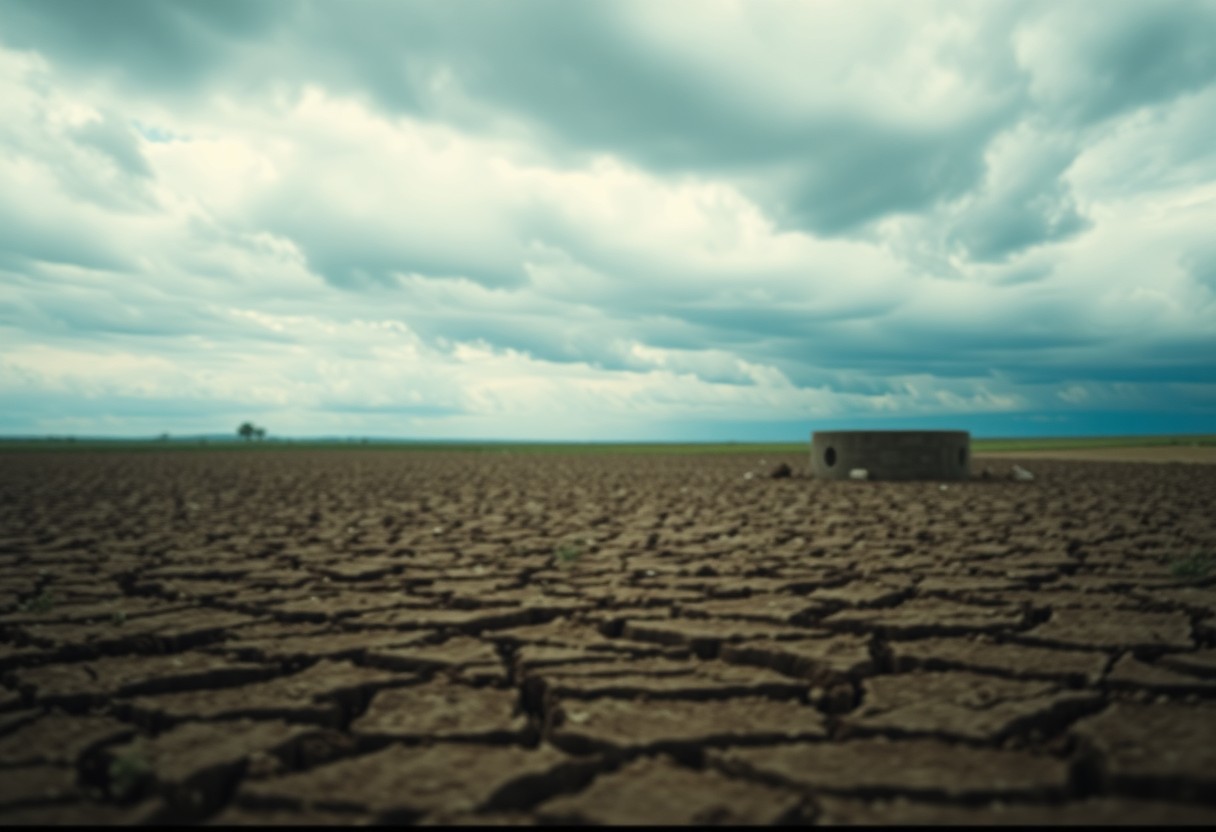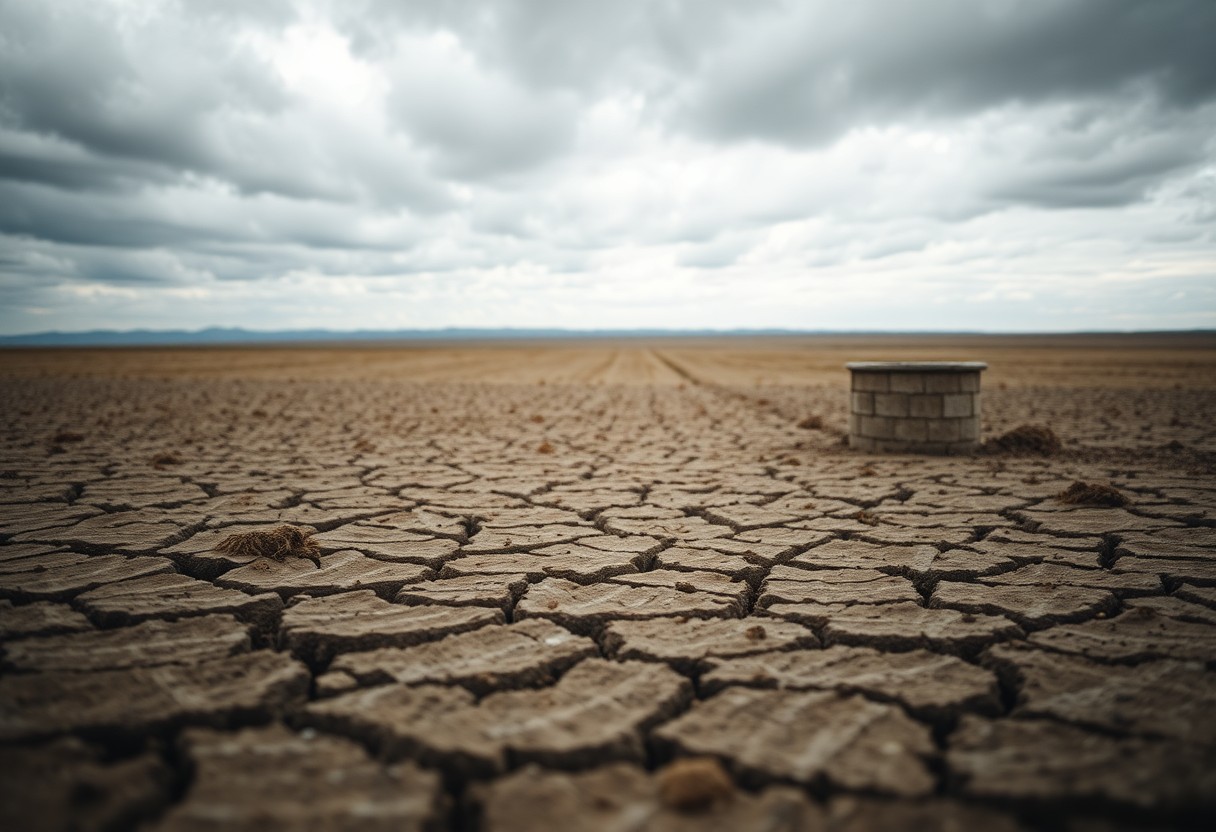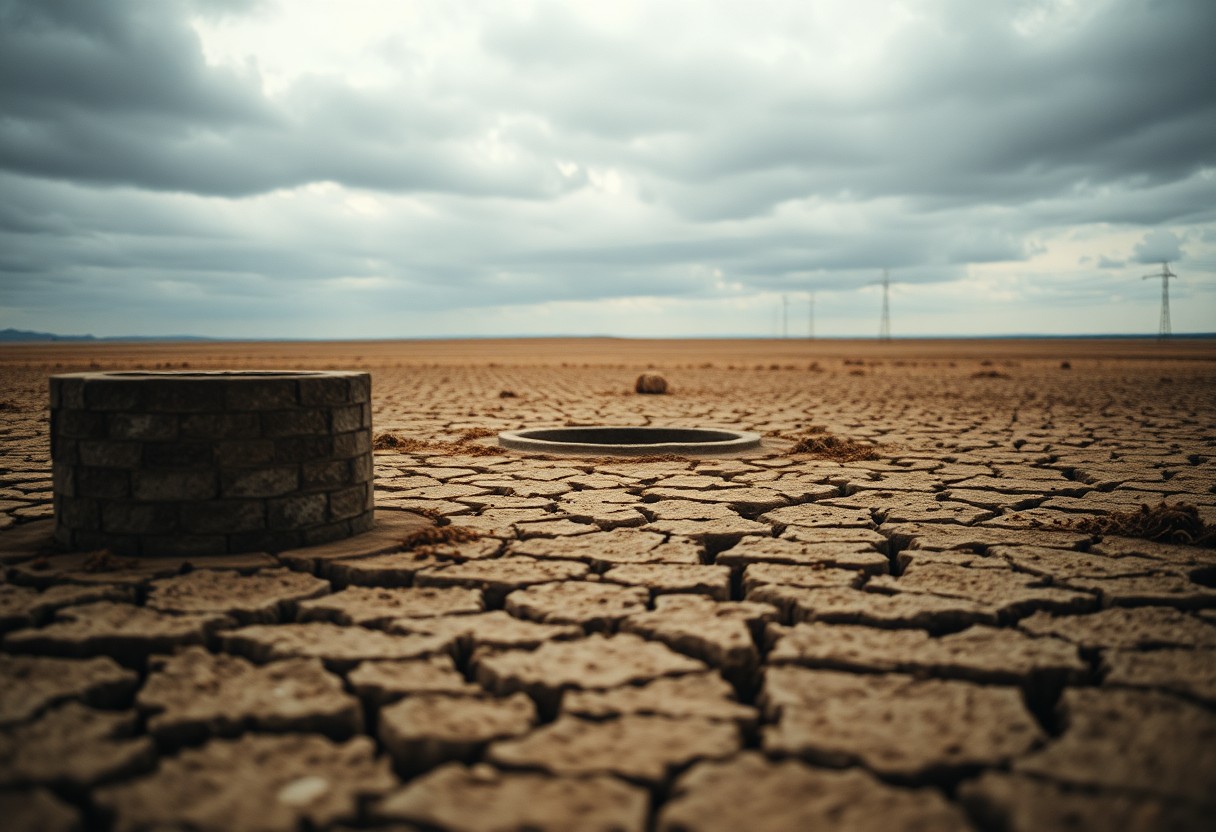Many people are unaware that groundwater depletion significantly impacts global food security, posing threats to agriculture and food supply chains that directly affect your daily life. As you explore into this issue, it becomes evident that over-extraction of vital water resources undermines crop yields and farmer livelihoods. This phenomenon is elaborated in the Study: Overuse of Water Threatens Global Food Supply, which highlights the urgent need to address groundwater management to sustain our food systems in the future.

Understanding Groundwater Depletion
While groundwater is an crucial resource for agriculture, drinking water, and sanitation, its depletion poses significant challenges to global food security. Over-extraction, coupled with climate change and population growth, accelerates the decline of aquifers, leading to severe consequences for both ecosystems and human livelihoods.
Definition and Causes
To grasp the issue of groundwater depletion, it is important to understand that it refers to the excessive extraction of water from underground aquifers, faster than it can be naturally replenished. Major causes include agricultural practices, urbanization, industrial demands, and climate variation, all of which exacerbate the depletion of this vital resource.
Global Trends in Groundwater Levels
About the state of groundwater, recent studies indicate alarming trends, showing declining levels in various regions worldwide. This decline disrupts local water supplies and agricultural productivity, leading to increased competition for water resources.
Groundwater depletion is impacting regions across the globe, with significant drops in aquifer levels observed in areas such as India, the Middle East, and parts of the United States. These trends highlight the seriousness of the situation, as many countries rely heavily on groundwater for irrigation and drinking water. As aquifers continue to diminish, you may find it increasingly difficult to rely on this crucial resource, threatening food production and overall water availability for future generations.
1. Groundwater depletion reduces irrigation water availability for crops.
2. Lower water levels diminish agricultural productivity and yields.
3. Decreased food production exacerbates global hunger issues.
4. Increased competition for water affects farming sustainability.
5. Crop diversity suffers from water scarcity pressures.
6. Economic stability declines as food prices rise globally.
The Link Between Groundwater and Agriculture
It is necessary to understand how groundwater directly influences agricultural practices worldwide. With around 70% of global freshwater resources allocated to irrigation, effective management of this resource is vital for sustaining food production. You can explore this further in The Hidden Wealth of Nations: Groundwater in Times of Climate Change, which details the significance of groundwater in fostering agricultural resilience amidst climate change challenges.
Importance of Groundwater for Irrigation
Importance of groundwater for irrigation cannot be overstated, as it serves as a reliable water source when surface water is scarce. Dependable irrigation systems that utilize groundwater enable you to cultivate crops in arid regions and during dry seasons, significantly supporting food security.
Impact on Crop Yields and Food Production
Production of food relies heavily on the availability of groundwater for irrigation, impacting overall crop yields. Adequate water supply directly correlates with healthy plant growth, leading to higher yields. This relationship is paramount for ensuring you have access to adequate food supplies for your community.
Irrigation using groundwater enhances agricultural productivity by providing the necessary moisture for optimal crop growth. When crops receive sufficient water, they can thrive, leading to increased harvests and improved food availability. In areas heavily reliant on irrigation, insufficient groundwater reserves can lead to reduced yields, threatening your local and global food security.
Regional Perspectives on Groundwater Depletion
Your understanding of groundwater depletion is vital as it varies significantly across regions. In arid and semi-arid areas, the over-extraction of groundwater has led to significant declines in aquifer levels, impacting agriculture, drinking water supplies, and local ecosystems. Conversely, regions with abundant rainfall might experience less immediate impacts, but groundwater depletion can still be a growing issue due to increasing population densities and agricultural demands. Regional policies and water management practices are key in determining the severity of these impacts.
Key Affected Areas
Below are several key areas significantly affected by groundwater depletion, such as California’s Central Valley, the Northern China Plain, and parts of India. These regions rely heavily on groundwater for irrigation and drinking water. As aquifers are depleted, water tables drop, making it increasingly difficult and expensive to access imperative water supplies, posing serious challenges to local communities and agricultural productivity.
Socioeconomic Implications
Among the socioeconomic implications of groundwater depletion are heightened food insecurity, increased poverty rates, and migration pressures. As farmers struggle to sustain their crops due to water scarcity, food production declines, leading to higher prices and limited access for consumers. This situation disproportionately affects low-income households that already face economic challenges.
Another significant socioeconomic implication involves the exacerbation of existing inequalities. Vulnerable populations, particularly in rural areas, often depend entirely on groundwater for their livelihoods. When these resources dwindle, it can lead to job losses and increased displacement. Additionally, as agriculture becomes less viable, many may be forced to migrate to urban areas in search of better opportunities, intensifying urban overcrowding and straining municipal resources. Investing in sustainable groundwater management practices will be imperative in addressing these social and economic challenges effectively.
Groundwater Management Practices
Not maintaining effective groundwater management practices can severely impact food security. Poor management leads to over-extraction, contamination, and depletion of vital aquifers, ultimately affecting agricultural productivity. By implementing well-planned strategies, you can optimize groundwater usage and help ensure a sustainable water supply for future generations, supporting global food needs.
Sustainable Water Use Strategies
Sustainable water use strategies focus on optimizing water consumption while preserving groundwater resources. You can implement practices such as crop rotation, soil moisture monitoring, and the use of drought-resistant crops to enhance water efficiency in agriculture. These methods not only help sustain groundwater levels but also ensure that your farming remains productive in the face of climate variability.
Technological Innovations
To address groundwater depletion, you can leverage various technological innovations. These advancements include advanced irrigation systems, water recycling technologies, and remote sensing for efficient resource management. By integrating these technologies into your farming practices, you can improve water usage and ensure a more resilient agricultural output.
And the role of technology in managing groundwater depletion cannot be overstated. Drip irrigation and precision agriculture allow for targeted water application, significantly reducing waste. Furthermore, real-time monitoring systems can provide data on water levels and usage, enabling you to make informed decisions. Investing in technologies such as soil moisture sensors or cloud-based irrigation management platforms empowers you to use groundwater smarter, ensuring its availability for the future while enhancing your crop yields.

Policy Frameworks and Global Cooperation
Now, addressing groundwater depletion and food security requires a robust policy framework that encourages global cooperation. Governments must work together to implement sustainable water management practices, share innovative technologies, and coordinate research efforts. By establishing guidelines and regulations across borders, nations can better manage shared water resources and take vital steps towards achieving food security in an increasingly water-scarce world.
National Policies on Water Management
Around the globe, national policies play a significant role in managing water resources. Your country’s water management strategies can directly influence agricultural productivity. Effective regulations, infrastructure investment, and promotion of water-efficient technologies are vital to ensure that water is available for agriculture while mitigating the depletion of groundwater supplies.
International Efforts to Address Food Security
After recognizing the interconnectedness of water, food, and security, international organizations actively collaborate to tackle these challenges. Multiple agencies, including the Food and Agriculture Organization (FAO) and the United Nations, promote policies that emphasize sustainable practices and equitable water distribution.
Understanding the global landscape of food security, you can see that these international efforts facilitate knowledge exchange, enhance access to resources, and promote inclusive agricultural strategies. By participating in initiatives such as the Sustainable Development Goals, countries commit to ending hunger and ensuring sustainable water management. These collective actions help build resilience against food insecurity exacerbated by groundwater depletion, illustrating the power of collaboration on a global scale.
Future Implications for Food Security
All these factors highlight the growing challenges of groundwater depletion, which directly impacts agricultural productivity and threatens food security. Understanding the Groundwater Pollution Impact on Food Security can provide insights into sustainable practices necessary for ensuring the resilience of food systems amidst these environmental changes.
Predicting Trends in Water Availability
Behind the looming challenges of groundwater depletion lies the need for accurate predictions regarding water availability. Current trends indicate that unsustainable extraction rates may lead to significant shortages in reliable water supplies, directly affecting crop yields and ultimately your food security.
Strategies for Resilience
Beside understanding the implications of groundwater depletion, you can adopt strategies that promote resilience in food systems. Implementing water-saving technologies and sustainable agricultural practices will be pivotal in mitigating the impacts of dwindling groundwater resources.
Further investment in research and development can enhance your knowledge of adaptive techniques, such as crop rotation and better irrigation methods. By adopting resilient practices, you can not only secure your local food supply but also contribute to broader efforts aimed at achieving sustainable food systems in the face of changing water availability. Engaging in community initiatives and policy advocacy further empowers you to make a meaningful difference.
Summing up
To wrap up, groundwater depletion significantly impacts global food security by reducing water availability for irrigation and negatively affecting crop yields. As you rely on agricultural systems for sustenance, the diminishing groundwater reserves threaten food production, leading to higher prices and increased food scarcity. By understanding the implications of groundwater depletion, you can appreciate the need for sustainable water management practices to secure your food supply and support agricultural resilience in the face of ongoing challenges.



